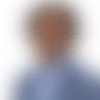NFC West
Arizona Cardinals (3-13)
2018 Team Offensive Ranks*Total offense:* 32nd*Passing:* 32nd*Rushing:* 32nd
Statistical Leaders (Final positional ranking/PPR ranks)
Passing:Josh Rosen -- 2,278 yards, 11 TD, 14 INT (QB33)
Rushing:David Johnson -- 940 yards, 7 TD (RB10/RB9)
Receiving:Larry Fitzgerald -- 734 yards, 6 TD (WR28/WR25)
What went right: Finding things to fill out this section depends on your definition of "right." The Cardinals sported the worst offense in the NFL last season but there were a few bright spots. Until a foot injury landed him on injured reserve, rookie receiver Christian Kirk showed an ability to be a playmaker. David Johnson showed no lingering ill effects from the wrist injury that robbed him of his 2017 season. Fantasy managers had multiple usable weeks from Ricky Seals-Jones -- something we've never been able to say about a Cardinals tight end. And Josh Rosen, well ... he played.
A mid-season change of offensive coordinators elevated Byron Leftwich to the gig and while the Redbirds' attack didn't exactly take off, it did get better, moving up a couple of spots in both rushing and passing offense. It's not much ... but when you struggled as badly as Arizona did last season, you take whatever silver linings you can find.
What went wrong: When you consider the Cardinals finished last or nearly last in just about every offensive category in 2018, the answer to the question "What went wrong?" was ... "Pretty much everything." The season began with a new head coach (Steve Wilks), a new offensive coordinator (Mike McCoy) and a rookie quarterback (Josh Rosen). By the time the calendar flipped to 2019, only one of the three remained with the team.
David Johnson began the season as a consensus first-round pick. He ended it as one of the bigger disappointments in fantasy football, though it's hard to fault him. With McCoy calling the plays, the Cardinals turned a talented, dual-threat offensive weapon into an "ordinary" running back with unimaginative play-calling and one of the worst offensive lines in the league.
That offensive line didn't do its quarterbacks any favors. No team allowed a higher rate of quarterback pressure than the Cardinals (36 percent). Arizona actually began the campaign with veteran Sam Bradford under center but turned to Rosen after a miserable start to the season (400 passing yards, 2 TD, 4 INT in three games), not that the rookie was much better. It was all enough to get McCoy fired after a Week 7 loss to the Broncos.
What needs to improve: The Cardinals made arguably the boldest hire of the offseason by locking up former Texas Tech head coach Kliff Kingsbury to remake their offense. Ideally, that will free David Johnson from the dismal play-calling that handcuffed him for most of the season. But no amount of offensive genius can overcome an offensive line that ranked 25th as a run blocking unit and 26th in pass protection (per Football Outsiders). Overhauling that group will need to be a priority this spring. Larry Fitzgerald is mulling whether he'll return for a 16th season but the Cardinals will still need to add more pass-catching weapons to take the pressure off of Rosen and Kirk. It remains to be seen if Kingsbury can duplicate Arizona's 2016 offensive success but it's hard to imagine anything being as bad as 2018.
Los Angeles Rams (13-3)
2018 Team Offensive Ranks
Total offense: 2nd
Passing: 5th
Rushing: 3rd
Statistical Leaders (Final positional ranking/PPR ranks)
Passing:Jared Goff -- 4,688 yards, 32 TD, 12 INT (QB9)
Rushing:Todd Gurley -- 1,251 yards, 17 TD (RB1/RB3)
Receiving:Robert Woods -- 1,219 yards, 6 TD (WR10/WR11)
What went right: Where nearly everything went wrong for the Cardinals last season, just about everything went right for the Rams. Sean McVay's offense found its stride in Year 2 with Los Angeles ranking near the top of the league in just about every offensive category. Jared Goff picked up where he left off in 2017, setting new career highs in completions, yards, and touchdowns. Todd Gurley somehow found a way to be even better in 2018, scoring 21 total touchdowns in just 14 games. Robert Woods set career-highs in every major offensive category while Brandin Cooks made his Rams debut by posting his first ever 1,200-yard season. Los Angeles even picked up free agent running back C.J. Anderson late in the year to fill-in for an ailing Gurley and he averaged 149.5 rushing yards in the final two games of the regular season. So, yeah ... things went well for this group.
If you need more proof that the Rams were living large in 2018, look no further than the latest round of NFL head coaching hires. Nearly every team has been searching for the "next Sean McVay" with several jobs going to men whose main qualification seems to be an acquaintance with the Rams head coach. If you can't beat 'em, copy 'em.
What went wrong: Finding negatives in the Rams' season requires a little bit of nitpicking. Losing Cooper Kupp to a knee injury midway through the season was a bit of a speed bump, though LA. navigated it by integrating Josh Reynolds and a pair of tight ends into the passing attack. Then there was the issue of the team's late-season offensive slump. A close win over the Lions followed by consecutive losses to the Bears and Eagles caused a little bit of a panic and led some to wonder if this high-powered offense had been "figured out." Considering Los Angeles posted 330 or more yards of total offense in 15 of 16 regular season games, those fears were probably overblown.
What needs to improve: When you finish the season in the top five in most major offensive categories, it's hard to suggest that there is room for improvement. But because everyone wants to be No. 1 ... maybe?
San Francisco 49ers (4-12)
2018 Team Offensive Ranks
Total offense: 21st
Passing: 15th
Rushing: 13th
Statistical Leaders (Final positional ranking/PPR ranks)
Passing:Nick Mullens -- 2,277 yards, 13 TD, 10 INT (QB32)
Rushing:Matt Breida -- 814 yards, 3 TD (RB24/RB26)
Receiving:George Kittle -- 1,377 yards, 5 TD (TE2/TE3)
What went right: In a season where fantasy managers struggled to find consistency from the tight end position, a gem emerged in an unlikely place. George Kittle was an undeniable fantasy stud in 2018, setting a single-season receiving record for tight ends with 1,377 yards. Overall, this season was one in which the 49ers unwittingly learned that they have depth at several positions. Matt Breida posted solid numbers in place of the injured Jerick McKinnon -- even if he frustrated the fantasy world with his continual on-again, off-again injury status. Quarterback Nick Mullens acquitted himself well for an undrafted free agent who began the year third on San Francisco's depth chart and went on to start the team's final eight games. Rookie receiver Dante Pettis was expected to mostly work as a return specialist this season but was pressed into service as a wideout late in the year and made a number of big plays in the passing game, which should provide optimism for next season.
What went wrong: Injuries were a big part of the 49ers season, with Kittle being the only skill position player to start all 16 games for the club. It began in the preseason when McKinnon was lost for the year with a knee injury. Things got worse in Week 3 when starting quarterback Jimmy Garoppolo suffered his own ACL injury, sidelining him for the remainder of the year. The C.J. Beathard experiment was a short one with the second-year quarterback struggling through five starts before handing things over to Mullens. The team's top two receivers -- Marquise Goodwin and Pierre Garcon -- played in a combined 19 (of 32) games, with neither player logging more than five catches in any game. If anything, Kyle Shanahan's offense gets an "incomplete" grade for the season after having to go so far down the depth chart at so many positions.
What needs to improve: The first job is just to get everyone healthy. Most observers were intrigued to see what Shanahan's offense could do with Garoppolo at the helm and McKinnon in the backfield. We're still waiting. While Garoppolo injured his knee while trying to make a cut on a scramble, the Niners would do well to improve their pass protection. Even so, the Niners will need to find help at the receiver position. Kittle's breakout season was impressive but San Francisco will need to give him help on the outside. That help likely won't come in the form of Garcon, who isn't expected to return next season. That makes it incumbent on Goodwin to regain the form he showed at the end of 2017 that made him a 2018 sleeper candidate. Any further development by Pettis would also be welcomed.
Seattle Seahawks (10-6)
2018 Team Offensive Ranks
Total offense: 7th
Passing: 27th
Rushing: 1st
Statistical Leaders (Final positional ranking/PPR ranks)
Passing:Russell Wilson -- 3,448 yards, 35 TD, 7 INT (QB9)
Rushing:Chris Carson -- 1,151 yards, 9 TD (RB14/RB15)
Receiving:Tyler Lockett -- 965 yards, 10 TD (WR11/WR16)
What went right: The Seahawks ran the ball a lot and they ran it well. No team posted more rushing yards than Seattle in 2018 and only the Baltimore Ravens logged more rushing attempts. An even bigger surprise was who wasn't running the ball -- namely Russell Wilson. The Seahawk quarterback wasn't the same type of rushing threat he has been in the past, averaging a career-low 4.2 rushing attempts per game and failing to score a rushing touchdown for the first time in his seven NFL seasons. Chris Carson took the reins as Seattle's lead back with Mike Davis and rookie Rashaad Penny providing plenty of support. That three-headed rushing monster could create plenty of fantasy consternation come draft time next summer, especially if Penny is given the chance to compete for the starting job. Lest you think the 'Hawks didn't take to the air at all, Tyler Lockett finally had the breakout season that many had predicted for years.
What went wrong: Apart from Lockett, the rest of Seattle's passing game left a lot to be desired. The offensive line didn't do the team any favors. Wilson was sacked a career-high 51 times and fell short of 3,500 passing yards for the first time since 2014. Doug Baldwin battled injuries all season long and finished with his worst season since 2012 (his second in the league). Injuries also shortened the season of rookie tight end Will Dissly, who got off to a flying start with six catches, 147 yards and a pair of touchdowns in his first two games. The biggest problem, however, was a lack of playmakers at the receiver position. After Lockett and Baldwin, Seattle's next best option in the passing game was seventh-round rookie wideout David Moore, who had a few productive outings but was overall too inconsistent to rely on.
What needs to improve: Beefing up the pass protection is a must for this team next season after ranking near the bottom of that category in nearly all 2018 metrics. An offseason of rest should help Baldwin get healthy and hopefully return to form in 2019 but it certainly wouldn't hurt to add receiver depth. The backfield doesn't necessarily need improvement after leading the NFL in team rushing yards but it would be a surprise to see Pete Carroll's team use a three-man rotation again next year. Rashaad Penny's late-season emergence could signal that he's in line for starter snaps in 2019.




